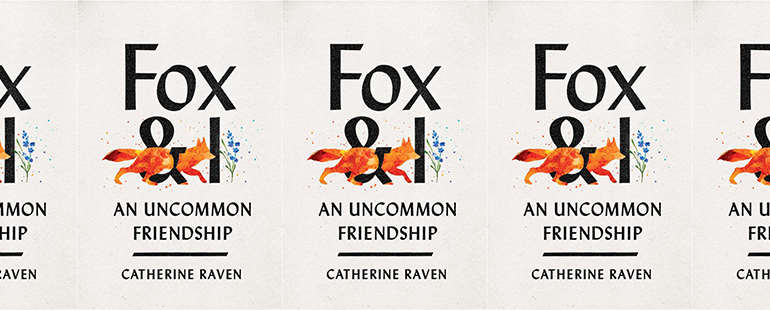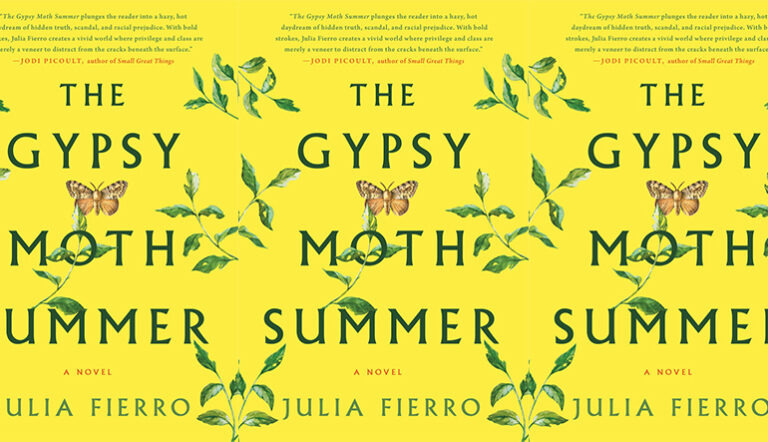Fox & I and the Power of Unusual Friendships

The opening pages of Fox & I: An Uncommon Friendship, out next week, finds author Catherine Raven at a crossroads. By the time the book begins, she has taken great pains to be an alleged grownup: she quit her job as a park ranger to get a PhD in biology and landed some work teaching university classes remotely and leading field classes in person; she bought some land and built herself a house in the middle of nature. And yet, noncommittal, ungrounded, tentative about every choice, and seeming to only mimic the ways in which adults ought to behave, she feels uneasy. Shouldn’t she apply for a more permanent and prestigious teaching position? Shouldn’t she own more than what she can fit in a hatchback? Shouldn’t she move to one of the nearby cities, where she can be surrounded by society and—perhaps, finally—learn how to interact more comfortably with people?
Instead, she begins to spend afternoons with a fox who lies about in her yard as she reads to him from The Little Prince. Charmed by this interaction at first, she quickly slips into shame: “The fox was alluring, almost magical. But the timing was inconvenient . . . A long time ago, I had arrived at the prudent and logical conclusion that when your own parents don’t want you, no one else will . . . Now . . . I had a sneaking suspicion that if I knocked persistently, and not too loudly, the doors to social acceptance just might open. But only if I left Fox and the mountain behind.”
Leaving, too, does not come naturally to her. Raven describes herself as an outlier—one who fails to read social cues, repeatedly makes poor choices in an attempt to fit in, and requires a designated translator in every group interaction. She refers—briefly and unsentimentally—to the abuse she suffered as a child at the hands of her father, though it is clear that what pains her most is not the physical violence. That, she claims she could handle. Her trauma instead seems to stem from the neglect, the disinterest, the sense that she was getting in his way:
The accomplishment of which I was most proud was having survived, in the literal sense of not dying. I carried with me one quotation from my father, not only because of what he said, but because he rarely said anything to me at all: ‘I didn’t want to have children, I don’t want to know if you ever have children, and I’m not interested in what happens to you.’ After a pause, he added, ‘The good news is, if you make anything of your life, at least you won’t have to worry about thanking me.’ He said this to me when I was twelve, and those statements, which represented his entire attitude toward me, overwhelmed my emotional state and all my relationships and everything I had ever done since.
It is easy to see that the very act of existing among others might not feel natural to Raven, though she acknowledges a need for it (“Any job that seemed an appropriate match for my PhD in biology, and that offered steady pay and health insurance, would require casting aside the life of a terrestrial Ishmael,” she writes). This question of what is “natural” threads through the book.
In spite of her instinctive urges, Raven is on the verge of giving up her isolation and occupational freedom to conform—only to have her life shaken by an encounter with a fox. In her wild Montana woods, Raven is constantly surrounded by animals, but this particular fox seeks her company, breaking the barrier she claims we as a society place between ourselves and the animal world. He comes to her yard, lounges around, approaches when she gestures, accompanies her on walks, and offers tokens of gratitude in the form of hunted prey. While Raven is thrilled and mesmerized by the fox, this budding friendship alarms her. Though she maintains some physical distance and does not attempt to domesticate him, her students begin to refer to him as her pet. In what she interprets as criticism of her behavior, they suggest she use him as a research subject in order to justify her interest in him.
For serious scientists, nature is supposed to be something you observe, not take part in. The assumption is that animals have no emotions—only survival instincts—and that anthropomorphizing them is a demonstration of simplemindedness. While she casts doubts on all of these ideas (“Nature is cruel: that’s a trope masquerading as a paradigm,” she writes, and, “I am so much less concerned with being ‘normal’ than with simply being alive”) she realizes she has broken an unspoken rule—friendships between people and animals are the stuff of childhood fancies; humans should stick with humans. She attempts to back away from her relationship with the fox, but he continues to pursue her. She offers him protection against wild dogs and other disruptions, and then admits to herself that she does not want to know him as a study case, but as an individual. She begins to note their differences (he decorates his den while she owns close to nothing) and similarities (they both keep one leg slightly raised during social interactions to facilitate a quick getaway). Their relationship highlights the challenges she has been struggling with for years—an urge to isolate in a world that celebrates civilization, a passion for anecdote in a field concerned with data, a belief in magic in a world of scientific inquiry, and a strong intuition that what is most common isn’t necessarily what is most natural.
As she lets go of her inhibitions and leans into her time with the fox, her professional curiosity transforms into empathy—a true desire to understand and change for the sake of another: “The more I watched him, and the more I understood him and appreciated his ease of living, insight became empathy. And empathy, I am convinced, is the gateway to friendship.” This empathy is reflected in whole sections of the memoir that are written from the fox’s point of view. Utilizing a more observational tone and metaphors appropriate for what the fox sees and experiences around him every day, Raven places herself in the animal’s mind as he hunts, plays, sniffs out enemies, and procreates. The manner in which she describes his thought process (simple and unemotional yet intricate and ground in clear rules), as well as the specific ways he uses his body, speaks of an astute perceptiveness that goes beyond scientific acumen. She utilizes the fox’s point of view not only to depict what she already knows about him, but also as a means of going beyond what she is able to interpret from a human perspective, to better understand the fox on his own terms. It shows the kind of attention artists and art lovers devote to the characters they care about. It is the kind of meditation on another found mostly in long-term relationships. It is also a means of questioning the dichotomy Raven struggles with, between science and intuition.
Though Raven believes that submitting to this interspecies friendship will seal her fate as an outcast, it is through it that Raven not only gives herself permission to settle into the lifestyle she desires, but finds ways in which she can allow herself to stretch and transform the paradigm of what that life might look like. She stays in her wilderness home but buys bigger and better furniture. She creates more committed human friendships (some of which blossomed when she began sharing her fox adventures) but stops apologizing for her animalistic ones. She finds full-time university employment while also allowing herself to teach and write about the natural world in a way that feels truer to her instincts—more intuitive, more personal, and more humanizing. She also comes to terms with the fact that though her upbringing had trained her to keep away from close relationships and oversentimentality, she cares deeply about the animals that live on her land. She takes over parental duties, for example, when the fox seems unconcerned with his kits’ safety, and forgives said kits for spoiling her hard work on the lawn; she makes changes to her property to accommodate the needs of animals; and she distinguishes between animals who are her friends and those that are merely neighbors. In other words, she allows herself to be someone who relies and who is relied upon, harnessing this dependency not as a weakness, but as a source of strength. In quoting conservationist John Muir, who said, “When we try to pick out anything by itself, we find it hitched to everything else in the universe,” she admits that though she has always felt more comfortable in a state of disconnect, connection to others—whether human or otherwise—is crucial for an emotionally healthy life. And in this lies true healing, and true change.


